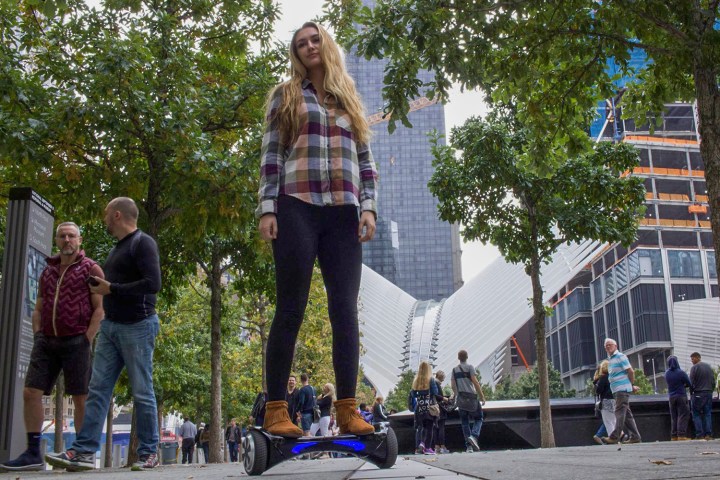
No, it’s not a move to prevent hoverboard-owning passengers causing chaos on flights by careering up and down the aisle on their self-balancing scooter. Instead, the airlines consider the boards – or more accurately, their lithium-ion batteries – as a fire hazard.
With the two-wheeled transporter set to be one of the holiday season’s biggest sellers, it’s possible that in the coming weeks there’ll be quite a few travelers rolling up to airport check-in desks on their newly acquired toy, unaware of the ban.
But take note, America’s three biggest airlines – United, Delta, and American – have all said that the transportation device will not be accepted as either carry-on or checked luggage, with other U.S. carriers, including Alaska Airlines, Hawaiian, and Jet Blue, also recently announcing a ban.
“Poorly labeled, powerful lithium-ion batteries powering hoverboards are the issue,” Delta said on Thursday, adding that after reviewing hoverboard product specifications, it’d found that “manufacturers do not consistently provide detail about the size or power of their lithium-ion batteries.”
The airline said the battery size and power often exceeded permitted levels for transportation on aircrafts, and that “while occurrences are uncommon, these batteries can spontaneously overheat and pose a fire hazard risk.”
Alaska Airlines, which also announced a hoverboard ban on Thursday, said, “As cool as they are, there’s one big problem: they are not safe to transport on an airplane….Internal short-circuits can occur with lithium-ion batteries, which can then lead to a ‘thermal runaway’ where the battery overheats and bursts into flame.”
Strong demand
With demand for the “hands-free Segway” suddenly so strong, there’s certainly plenty of money to be made. Manufacturers around the world are ramping up production, though it seems some makers are ignoring quality in a bid to keep costs down. Just last week it was revealed that the UK authorities have impounded almost 90 percent of 17,000 boards shipped to the country in the last six weeks over concerns that they could be a fire hazard.
A National Trading Standards’ spokesperson said customs officials had seen “a significant spike in the number of unsafe hoverboards arriving at national entry points in recent weeks.” Many of the problems center on the machine’s plug, cabling, charger, or battery.


